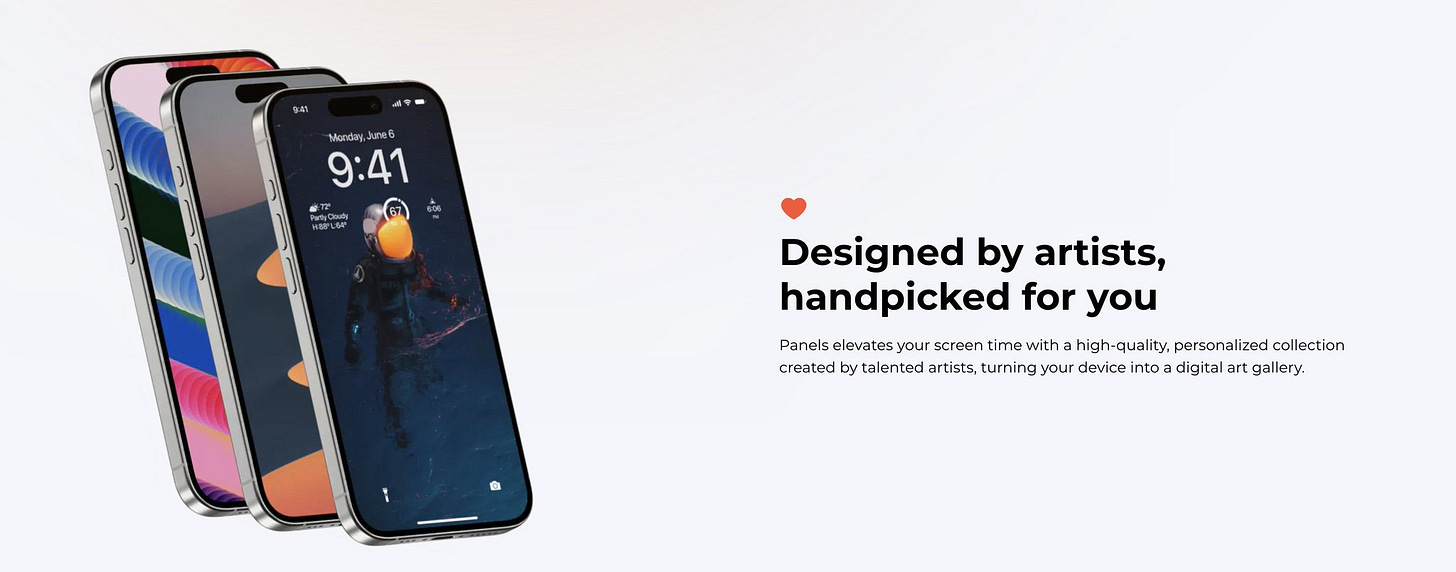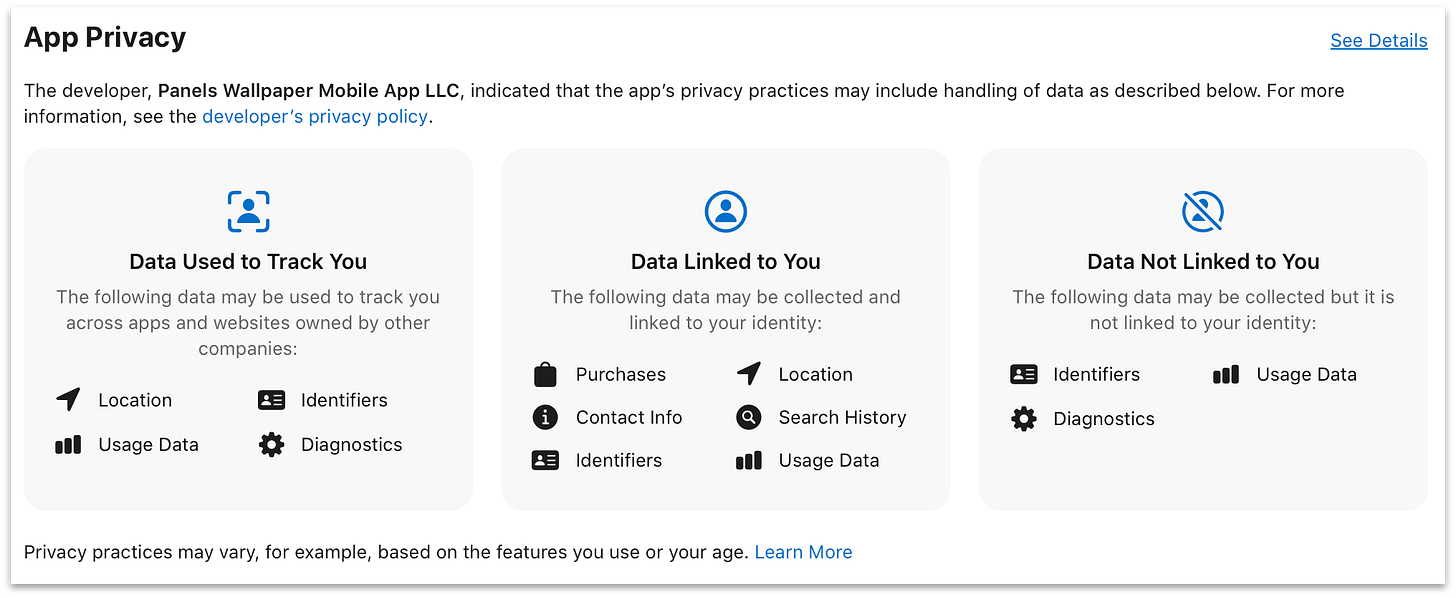About Panels and Marques Brownlee
A crash course on how to do not launch a product
Unless you have been living under a rock, you probably have heard of Marques Brownlee, aka MKBHD. Marques is one of YouTube’s most respected tech reviewers with over 19 million subscribers who has been publishing tech review videos since 2008, and he has built a brand synonymous with in-depth tech reviews and sleek production quality.
(Please continue reading while listening to the bad flute song).
Panels
Marques introduced Panels during his iPhone 16 review video, promoting it as an app offering a curated collection of high-resolution wallpapers from digital artists. However, the app's launch was met with immediate criticism from fans and tech enthusiasts.
What went wrong?
Pricing model
The app's subscription model was deemed too expensive by many users. A Panels Plus subscription costs $49.99 annually or $11.99 monthly for full access to high-resolution wallpapers. I mean, if you can afford it, that’s great but, in the end of the day, these are just… wallpapers. And we are all pretty tired of endless subscriptions.
Ad-heavy free version
The free version of the app requires users to watch two advertisements before downloading a standard-definition wallpaper. One would have been annoying enough but, ok, fair - it is free. Now, two - you are in for a direct competition with YouTube free users, but with very little added value at the end of the transaction.
Privacy concerns
Users raised issues about the app requesting extensive permissions, including tracking user activity across websites and apps, and seemingly using location data. Again - this is just a wallpaper app.
Perceived value
Many felt the app didn't offer enough value to justify its price, especially considering the ease of finding high-quality wallpapers for free online.
Moreover: we are living in the age of generative AI, so pretty much everyone has access to endless custom wallpapers. One of the wallpapers offered by Panels was called “Orange” and it was literally this:
The technical flaws
To add to the list of problems, users also discovered that the app was rather poorly made and all payments were being verified on the client side 🤡. Basically, links to all wallpapers were preloaded right after the app is launched, so a little MITM workaround and one could get them all for free. The file with the wallpaper links were also not authenticated or protected at all.
Marques’s response
Following the backlash, Marques quickly addressed the concerns (cheers for that because at least he’s acknowledged the issues):
He promised to reduce the frequency of ads in the free version of the app.
Marques admitted that the data disclosure requests were "likely too broad" and assured users that the app would never actually ask for location or browsing history.
He emphasised that the app was built "from scratch" and that profits would be shared 50/50 with the featured digital artists, in an attempt to support independent artists.
The tables are turning
Now what’s funny about this whole story is that this app launch is contradictory to Marques’s typically critical stance on overpriced or underperforming tech products.
What can we learn from this?
Audience expectations
Influencers transitioning to product creators must ensure their offerings align with the standards they've set in their content.
Value proposition
In a saturated market, a strong and clear value proposition is crucial, especially when asking users to pay for a service.
Privacy first
In today's privacy-conscious environment, apps should minimise data collection and be transparent about their practices.
Pricing strategy
Careful market research is essential to set pricing that aligns with perceived value and market norms.
Technical robustness
Ensuring app security and preventing easy workarounds is crucial for maintaining credibility and protecting revenue streams.
Rapid response
Marques’s quick acknowledgment of issues demonstrates the importance of swift and transparent communication during product launches.
While Marques’s intentions to support independent artists are commendable, the execution of Panels highlights the challenges influencers face when venturing into product development. This incident serves as a cautionary tale that even well-established tech personalities can stumble when moving from critic to creator, underscoring the importance of thorough market research, robust development, alignment with audience expectation, and the critical need for a strong value proposition in a competitive market.
🍭 The sweet
Being humble and open to constructive feedback
Having good intentions and wanting to support independent artists
🍋 The sour
A poorly made app with massive privacy concerns
Poor market research (a wallpaper app in 2024, really?)
🍵 Keep on sipping!
Feel free to leave a comment, share this article and subscribe to Tech Tea!




